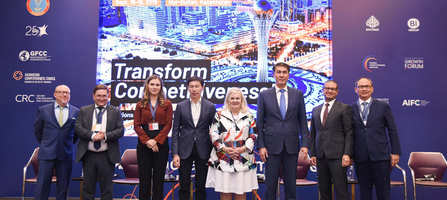
News
Human capital development of the Republic of Kazakhstan is a "Battle for the future"
May 10, 2020

Further to the session of open discussions from the Institute of World Economy and Policy on the results of analytical research on modernization and implementation of systemic reforms in Kazakhstan, the Center for Research and Consulting presented the results of work on the development of human capital and the labor market.
The key findings and recommendations of the study were presented in an online broadcast. The main speakers were Gulbanu Pazylkhairova, the Project Manager of the Foundation Of the First President of Kazakhstan – Elbasy, Anuar Buranbayev and Kuanysh Zhaikov, Partners Of the Center for Research and Consulting. The event was moderated by the Director of the "TALAP" Center for Applied Research, Rakhim Oshakbayev.
National experts were also invited to participate:
• Yermek Alpysov - Vice-Minister of the Ministry of National Economy of the Republic of Kazakhstan;
• Chokan Laumulin - a researcher at the Center for Development Studies of the University of Cambridge;
• Gulmira Raisova - Chairman of the Coordination Council of the Association of HR managers of the Republic of Kazakhstan;
• Togzhan Kozhalieva - initiator of the HAQ civil movement;
• Sergey Domnin - Chief Editor of the "Expert Kazakhstan» business magazine;
• Yernar Zharkeshov - Director of the Kazakhstan representative office of the Whiteshield Partners international consulting company.
During the presentation, the authors of the study voiced a new view on the development of human capital. According to the authors of the study, this concept goes beyond the discussion of education and health - it is necessary to consider the impact of values and informal institutions that directly affect the formation and quality of "soft" skills of a person.
To familiarize the audience with the main problems in the development of human capital, results were presented in the field of demography, income, employment and education – the main "solid" factors. Special attention was paid to the results of the analysis of the value portrait of Kazakhstan people and spatial characteristics of the population. We also analyzed the impact of external factors: two groups of global trends - wars for talent and skills transformation - on the development of human capital.
As key conclusions, the authors of the study emphasize the importance of transforming current values and informal institutions, which currently hold back the 3rd modernization. In terms of space, the heterogeneity of human capital was revealed - in fact, the country is divided into 4 large regions, which reduces the effectiveness of unified policies and requires a targeted approach.
Taking into account the identified problems, two blocks of solutions were proposed: rethinking the space – the "new map of the country" and horizontal policies – the development of social capital.
At the end of the presentation, the experts gave a positive assessment of the research approaches and results, as well as suggested areas for further improvement.
Thus, Ye. Alpysov agreed with the recommendations on decentralization and strengthening of institutions: "Yes, decentralization is necessary, more power should be given to local people. We are also working on this now. We touch upon issues of administrative division and simplification of budget procedures" .
The Vice-Minister also recommended expanding the block of initiatives related to spatial development: "The most problematic issue is the problem of relocation from single-industry towns. We have a problem with Zhanaozen now – people do not want to leave this city completely. I think we should develop resettlement programs within this region."
The importance of considering human capital through the prism of values was supported by G. Raisova: "When organizations take the path of transformation, want to make a big difference, they are very much on the behavioral side. Especially at the executive level: the interaction of the executive-subordinate, leadership style, culture style. [...] The measure of "importing role models" is a very strong tool for changing the culture. But there is also such a good tool – "bright spots", when you find in your environment such leaders who demonstrate the values of initiative, support for creativity, etc."
Potential solutions in the field of labor and employment were raised by T. Kozhalieva: "As experience shows, our Kazakhstanis are very competitive with foreign specialists abroad due to their education. Why do not we also focus on training our personnel for foreign companies? This strategy was previously followed by China. When we understand what kind of personnel we need to train, we understand what kind of education system we need to reform."
The final stage of the webinar was a Q&A session from the audience. The issues of changing the values of the population and the impact of technological trends on the development of human capital were discussed.
The presentation and extended version of the study are available for reading on the website of the Kazakhstan club of experts. All information about public discussions of the results and recommendations of the study will also be available on the page.
all publications












